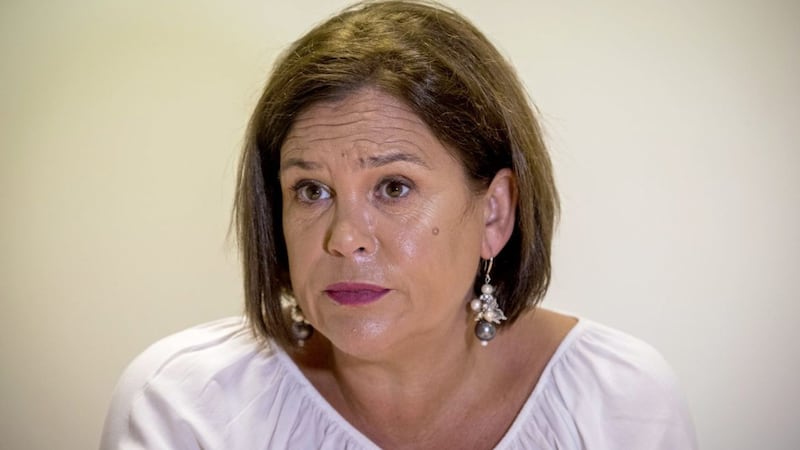FOR centuries the rights and interests of the people of this country, nationalists and unionists, have been subject to the interests of the British government, irrespective of the collateral damaged caused to the people here.
The Good Friday Agreement (GFA) was supposed to be the beginning of a new era where the north of Ireland was the shared responsibility of the Irish and British governments and free of the malign and prejudiced influence of the British government.
The GFA promised all-Ireland institutions with expanding horizons and equality and parity of esteem between the people of the north.
Much has changed since the introduction of the GFA and Ireland has changed for the better on many fronts.
But Brexit risks all of the progress that has been made and also risks the potential change that the GFA promised in terms of a society based on equality and parity of esteem - i.e. rights - and a pathway to a new independent Ireland.
Brexit has introduced, through the front door, a double veto over that promised by the GFA, the dead hand of the DUP in collaboration with the Tories and fanatical Brexiteers.
Due to the Brexit needs of the British government, the DUP - which is a minority voice - has had its status and influence elevated to the point where it is effectively running the British government's Brexit policy.
Before Brexit, the DUP had effectively blocked the full implementation of the GFA and created an immovable unionist veto inside the north's institutions - immovable because of the failure of the British government, in particular, to act.
The north's institutions were doomed long before the heating scandal led to their collapse.
Since the collapse of the institutions the situation has deteriorated to the point where the DUP's influence, through Brexit, is set to damage, not just northern society in terms of its economy and people's human rights, but the economy of the rest of this country.
Northern nationalists - ever mindful of the limitations placed on their national and cultural rights by the confines of a unionist dominated state - have moved to achieve their rights beyond the six counties and are now beginning to shape a new political framework, within an all-island setting, with the Irish government the principal focus and with the primary objective being reunification.
That is what 'Ireland's Future' conference in the Waterfront Hall publicly signalled.
The context of the shift was the realisation by northern nationalists, after 10 years of government, that the DUP was opposed to power-sharing and fully working, to their maximum, the all-Ireland institutions of the GFA.
In fact, the DUP was using the institutions to block progress, including the modernisation of northern society on human rights issues such as access to the truth for grieving relatives, marriage equality, abortion reform, an Irish language act, Irish citizenship and a Bill of Rights.
The shift was also influenced by a new and younger nationalist middle class who had experienced the war years; had been politicised by their experience, were confident and assertive and seeking, not a reformed north, but a new and independent Ireland, where a reformed north could have an institutional place in a transitional arrangement.
The first signs of the shift were the north's nationalist electorate turning its back on Westminster and voting for Sinn Féin abstentionist MPs.
The other element, and in my view, the most crucial in the shift is the reality that nationalists will be a voting majority in the not too distant future and under the terms of the GFA could vote for a united Ireland in a border poll.
But shifts are not confined to the nationalist population. Brexit is impacting on the broad unionist community as well.
We saw that in 2016 when a section of unionists voted with nationalists to Remain in the EU and a few months later stayed at home resulting in the unionist parties losing their majority in the north's assembly for the first time in 100 years.
Add into this fast-evolving situation the possibility of a Jeremy Corbyn-led government in Downing Street after the next election and we have the ingredients for a transition to a new and independent Ireland triggered by Corbyn implementing the GFA in all its parts, including the provision for a unity/border poll.








